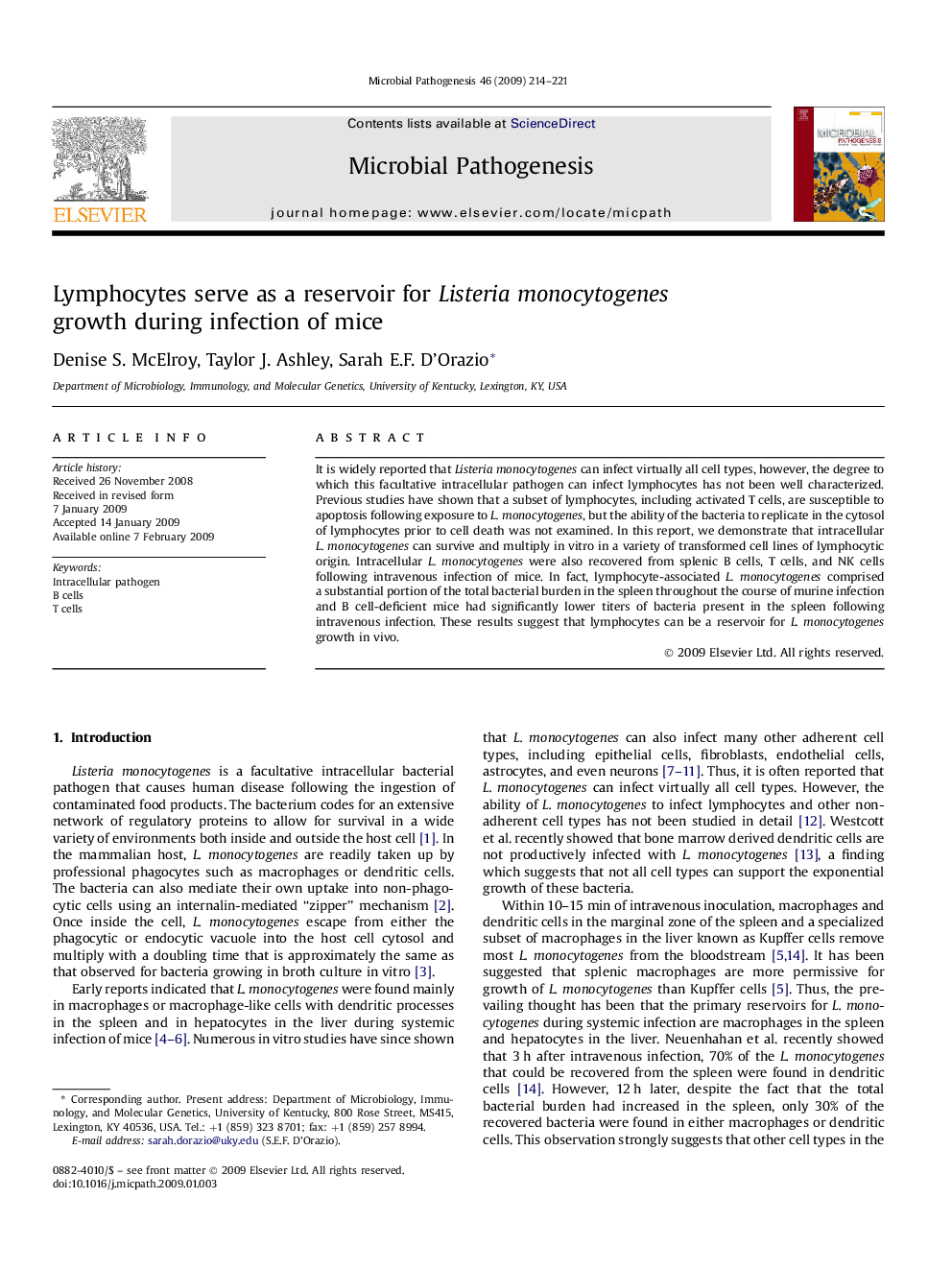| Article ID | Journal | Published Year | Pages | File Type |
|---|---|---|---|---|
| 3417043 | Microbial Pathogenesis | 2009 | 8 Pages |
It is widely reported that Listeria monocytogenes can infect virtually all cell types, however, the degree to which this facultative intracellular pathogen can infect lymphocytes has not been well characterized. Previous studies have shown that a subset of lymphocytes, including activated T cells, are susceptible to apoptosis following exposure to L. monocytogenes, but the ability of the bacteria to replicate in the cytosol of lymphocytes prior to cell death was not examined. In this report, we demonstrate that intracellular L. monocytogenes can survive and multiply in vitro in a variety of transformed cell lines of lymphocytic origin. Intracellular L. monocytogenes were also recovered from splenic B cells, T cells, and NK cells following intravenous infection of mice. In fact, lymphocyte-associated L. monocytogenes comprised a substantial portion of the total bacterial burden in the spleen throughout the course of murine infection and B cell-deficient mice had significantly lower titers of bacteria present in the spleen following intravenous infection. These results suggest that lymphocytes can be a reservoir for L. monocytogenes growth in vivo.
